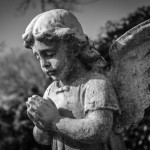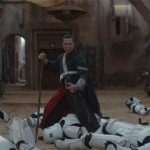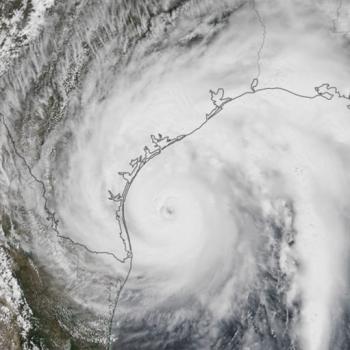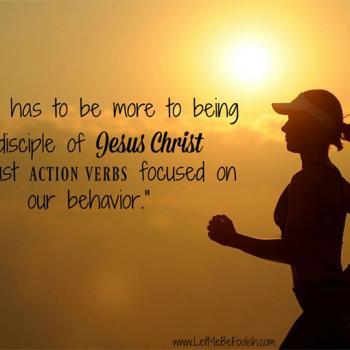This guest post was written by Hunter C. Beezley.

It’s the first day of the new year. I’m sitting across from my wife, groggily sipping some necessarily strong coffee in a cozy and warm cafe.
She asks, “What have you learned in 2016?”
It’s good and healthy to ask that question. It helps us to reflect on the past, learn from it, then move on with this new year. It’s going to move on whether you’d like it to or not. The problem is that I would like it to move right along as soon as possible. I’m sure I’m not alone in that sentiment.
2016 was especially difficult. It was a dense year. Chock full of major world events, too many deaths that came way too soon, and one of the most difficult, ridiculous, and devastating political elections in this country (especially for progressives). Then there’s my own life: both my wife and I have experienced more change, growth, and newness in this last year than we ever have before. So when I’m asked, “what have you learned in 2016?” it’s a difficult question to answer because it seems as if the list may not end.
But I still have to answer. I have to start somewhere.
What I’ve included below is merely a start in a longer reflective process.
This is what we talked about as we both—together—began to answer that question. What I’ve learned in 2016:
- To take seriously the imperative, “love your neighbors as yourself” (Mark 12:31) is an impossibility unless I genuinely get to know who my neighbor is. Like that old scribe asked Jesus, “who is my neighbor?” (Luke 10:29), it goes to show what we know about Jesus’ teaching doesn’t really mean much if we don’t know how it works in our day to day. I think, deep down, we all assume what it looks like to love, but love is not an imposition onto others. What loving is for me can quite easily be unloving to another. I think this is primarily why Jesus answers the scribe with a parable: a story that by no means encapsulates every “neighbor” but somehow does. It provides a template for loving our neighbors by first hearing their story and seeing their experience and then letting that story tell us what love is for them. So this next year, I’m intentionally getting to know the “neighbors” in my life and asking, How do I know what “love” looks like for my neighbor if I do not know what it’s like to be my neighbor?
- What we think/believe needs a practical and applicative dimension. This one is especially hard for me. Ever since I was young, I have been captivated by critical thinking, doubting, and theologizing. I mean, I went to seminary and everything. But there came a particular point in all that studying and writing that my colleagues and I asked, “what’s the point if this does not make it into the streets?” In other words, we were noticing a huge gulf between what happens in seminary and what happens in the everyday lives of people within our communities. What does it actually matter if our theology does not function? It’s one thing to notice this problem, but it’s a totally different beast to fix it. 2016 has been trying to reveal opportunities to put to work my theology: racial injustice, economic inequalities, ecological destruction, deeply rooted xenophobia–and these are just a few. For this next year, in my day to day, at home, at church, at work, at play, I am intently asking, what does the gospel have to do with this? What does it have to say?
- Progressive Christians, now more than ever, have to fight to rekindle and reattach Christianity to politics. I’ve said it many times before and I’ll say it again: the gospel was political. Even the opening lines of Mark’s gospel were a political statement: “The beginning of the good news of Jesus Christ, the Son of God” (Mark 1:1). This phrase was common around the Roman empire, but with a twist. It was always “the good news of Caesar, the son of god.” When Mark and other gospel writers co-opted this rhetoric and applied it to Jesus they made a political and religious statement (religion and politics were not separate things then) that the power of the empire is not divine but rather that God is on the side of the oppressed and the poor. This was derision and mockery for an Imperial Roman leader who brought “universal peace to all people” through violence. 2016 has shown us that if we want to carry on the goal of the gospel and bring Jesus’ “kingdom of God” to the earth, we need to actively participate in the political trajectory of wherever we live. This next year I’m making an even deeper commitment to the political nature of the gospel and encouraging my evangelical community to return to the political subversion that was Christ’s life and ministry. I am imploring, don’t forget the necessary linkage between our religion and politics!
This list could easily go on, and on, and on…
There is still so much that 2016 still has to teach me and I’m sure long after this post I’ll still be working over these lessons and more. I could write and write, and think, and talk, and blah blah blah…
But: it’s 1pm, Sunday, Januaryy 1, 2017; the new year is already upon me…
Gotta get to work.
 About Hunter C. Beezley
About Hunter C. Beezley
Originally from Mississippi, Hunter currently lives in Portland, OR with his wife. He received his Master of Arts in New Testament from Union Theological Seminary in the City of New York and his Bachelor of Arts from Nyack College in Nyack, NY. His Southern background informs much of his theological work and he has been increasingly interested in Theologies of Food with a significant emphasis on the Eucharist. When he is not reading or writing, he’s probably hiking or traveling with his wife or working as a Mac computer technician. Hunter blogs at hunterbeezley.weebly.com and can be found on Twitter at @HBeezley.












